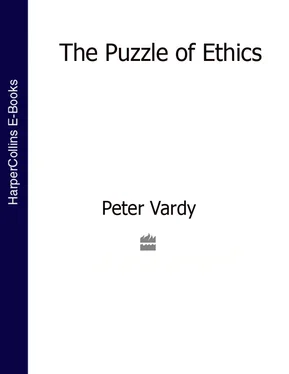Attending to the elderly gentleman is the last priority. The duration and certainty of his future pleasure is under question owing to his age. He has all but lived his life; this is sometimes known as the ‘good innings argument’. According to this line, the value of his life is not now as great as the young married couple’s who have much of their lives ahead of them, nor of the young child who has yet to go in to bat, as it were.
Some problems:
One of the problems of Bentham’s theory and his hedonic calculus was that its results were based on a quantitative measure. That is, how much sheer quantity of pleasure can be gained from an action. Just by attending to one patient, the young mother, the decision has all but guaranteed that two people will be saved, and that the likely number of years in which they may experience pleasure is probably going to be a lot greater than the number of pleasurable years spent by the elderly gentleman. Moreover, the certainty of saving either the husband or the elderly gentleman is by no means guaranteed, whereas the death of the young mother and her child is almost guaranteed. So, although it may be a difficult decision, the doctor on strict utilitarian grounds would have to save the young mother and child because the quantity of pleasure is the important issue. But, can the quantity of pleasure actually be measured in numbers of years? Furthermore, who will do the measuring?
The second problem is that utilitarianism relies strictly on its predictive value. But who can predict that the child will grow up to be happy and productive, that the old man will soon die anyway, and that the sum total of pleasure to be gained by the young family is going to be greater than the old man’s? The child may grow up to be a mass-murderer, the family may then lead a collective life of guilt and misery, and the old man may, like Bertrand Russell, have been destined to make his major mark on political life in his eighties and nineties.
The third problem is to do with what counts as pleasure. Pure emotional and bodily pleasures are clearly quantifiable. But is it just pleasure that we wish to seek or increase and pain that we wish to avoid or minimise? I might be prepared to suffer a great deal of pain in order to gain a minimal amount of pleasure. The quick extraction of a painful tooth might, on the quantity of pleasure theory, be preferable to hours of painful dentistry involving excavating, filling and polishing the tooth, whilst simultaneously suffering the continuing pain of the tooth itself, all in order to satisfy some intangible desire to retain all my teeth. Or, supposing I wanted the pleasure of being thought slim, I could, like many slimming fanatics, put myself through continual painful exercises and diets in order to wear jeans one size smaller. Or, more importantly, I could forgo all obvious pleasures of the moment, practise continuously on the piano in order to lead a precarious existence as a second-rate concert pianist combined with the dubious pleasure of fame.
John Stuart Mill (1806–73)
John Stuart Mill understood the problems only too well. Mill wanted, therefore, to define pleasure a little more carefully, and this involved shifting the emphasis from quantity to quality. Mill distinguished between the higher pleasures, associated with the mind, and the lower pleasures, associated with the body. Clearly the two are linked. It is difficult to experience the pleasures of intellectual pursuits whilst remaining perpetually cold and hungry. But after the minimum requirements of the body have been satisfied, that is, after the lower pleasures have been attended to, then the real moral business involves pursuit of the higher goods: mental, cultural and spiritual. Arguably, on this view, the person who eats and drinks in moderation in order to spend more time designing elegant, ecologically-sound and inexpensive clothing is morally better than the person who is anxious to toss off quick, profit-making designs in order that he may then pursue the known bodily pleasures of sex, food and drink in large quantities. The higher pleasures of the mind are to be preferred to the lower pleasures of the body. As Mill states: ‘It is better to be a human being dissatisfied than a pig satisfied; better to be Socrates dissatisfied than a fool satisfied.’ (J. S. Mill, Utilitarianism , ed. by M. Warnock, 1962, Collins, p. 260).
Some criticisms:
There are still a number of problems associated with this view. Firstly, as Henry Sidgwick (1838–1900) pointed out, how in practice do we distinguish properly between higher and lower pleasures, and how do we distinguish one higher pleasure from another? If all cultural and spiritual activities provide the same sum of pleasure and happiness, presumably it does not matter which one we choose to undertake at any time. If reading Shakespeare, playing Bach, and painting watercolours all produce the same degree of pleasure, then there is nothing to choose between them. Sidgwick understood that life is just a shade more complex than that, for every activity and pursuit, whether physical or intellectual, is both quantitatively and qualitatively different. An hour’s reading of Shakespeare is just not equivalent to an hour’s playing of Bach, and so on. Moreover, where do physically and intellectually demanding pursuits such as sailing, play-acting and advanced kung-fu fit into the higher/lower pleasures distinction? Is the refined eating of a carefully planned foreign dish a higher pleasure, and the eating of a takeaway beef-burger a lower pleasure? The difficulties are endless.
Конец ознакомительного фрагмента.
Текст предоставлен ООО «ЛитРес».
Прочитайте эту книгу целиком, купив полную легальную версию на ЛитРес.
Безопасно оплатить книгу можно банковской картой Visa, MasterCard, Maestro, со счета мобильного телефона, с платежного терминала, в салоне МТС или Связной, через PayPal, WebMoney, Яндекс.Деньги, QIWI Кошелек, бонусными картами или другим удобным Вам способом.












